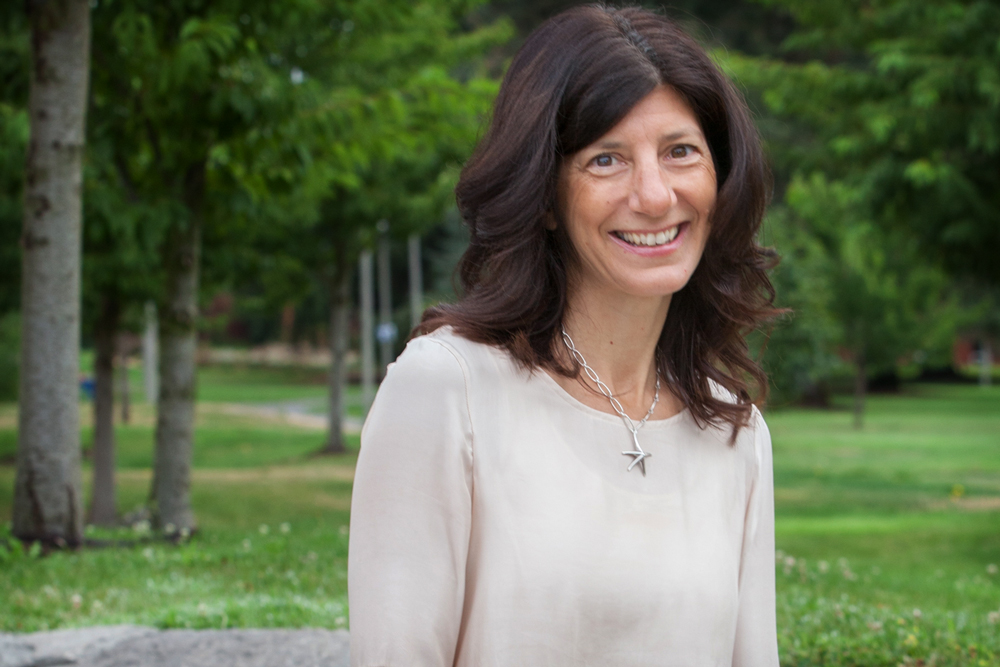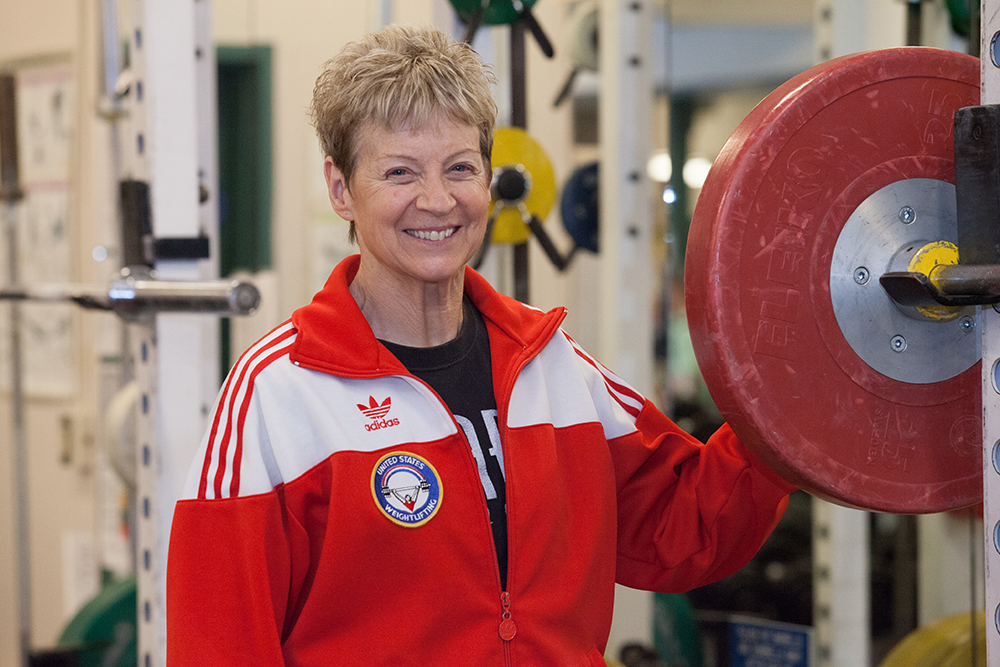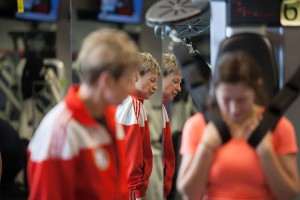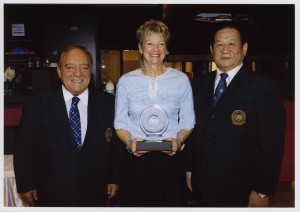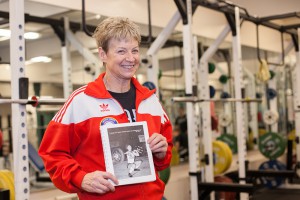A part of the family
“This is where I grew up,” says Professor Veronica Brock from her office in O’Connell Sports Complex on Clark’s main campus. “My dad was a professor here, teaching physics and astronomy. I was a student here. I grew up with ‘Penguin blood,’ as we like to say.”
Brock, who recently marked 20 years of teaching at Clark, didn’t intend to follow in her father’s footsteps. After graduating from East Stroudsburg University in Pennsylvania with a Master of Science degree in cardiac rehabilitation and primary prevention, she remained on the East Coast working in cardiac rehabilitation. But gradually she began to realize that she didn’t love the clinical aspects of her work as much as she did teaching patients about their health.
“I’ve always just followed my heart when it came to career and jobs,” Brock says. “Every job I got, I’d say, ‘Oh, I like this aspect of the job—let’s do more of that.’ When I worked in cardiac rehab, I realized my favorite part of my job was the educational element.”
Brock began teaching health and physical education, and when she decided to move back to the Pacific Northwest, taking a position at Clark seemed like a natural fit. “It was a good match for my heart, with this job’s teaching and learning focus,” she says. “And I love the idea that, as an open enrollment institution, we provide an opportunity to everybody. That’s such a cool idea: If you want an education, you can get an education.”
Brock—who teaches health, physical education, fitness trainer, and health and physical education classes—says she loves seeing the changes her students make as they learn to develop new approaches toward their own health.
“In our curriculum, we don’t just want students to change their behavior during the class,” she says. “We want to teach lasting change, and that requires motivation. Motivation is two things: importance and confidence. You have to be able to define why it’s important for you to be doing this, and you have to be able to believe you can do it. If you don’t have motivation, you’re probably not going to stick with any exercise or health practice long-term.”
Brock’s certainly shown long-term motivation to make Clark a stronger institution. She has invested much of herself into Clark—professionally, personally, and financially. She has served on numerous committees, including the Healthy Penguin Nation Committee to promote employee health, and is a regular donor to the Clark College Foundation.
Brock says she began donating to the Foundation when her two children, now teenagers, were enrolled in the college’s Child & Family Studies program as preschoolers, making her family third-generation Penguins.
“My kids are the amazing people they are today because of that program,” she says. “So that really prompted me to give—I could see the program needed support.”
Since then, Brock has donated regularly to the Foundation, which supports capital improvements to the college as well as scholarships and programs to promote academic excellence.
“I like putting my money toward solving problems,” Brock says. “Education is a solution; if you educate the world, the world can change. It’s a very direct way to say, ‘I believe in what I’m doing and I believe in our students.’”
Read Veronica Brock’s Top 10 Tips for a Healthy Lifestyle.
Photos: Clark College/Jenny Shadley
